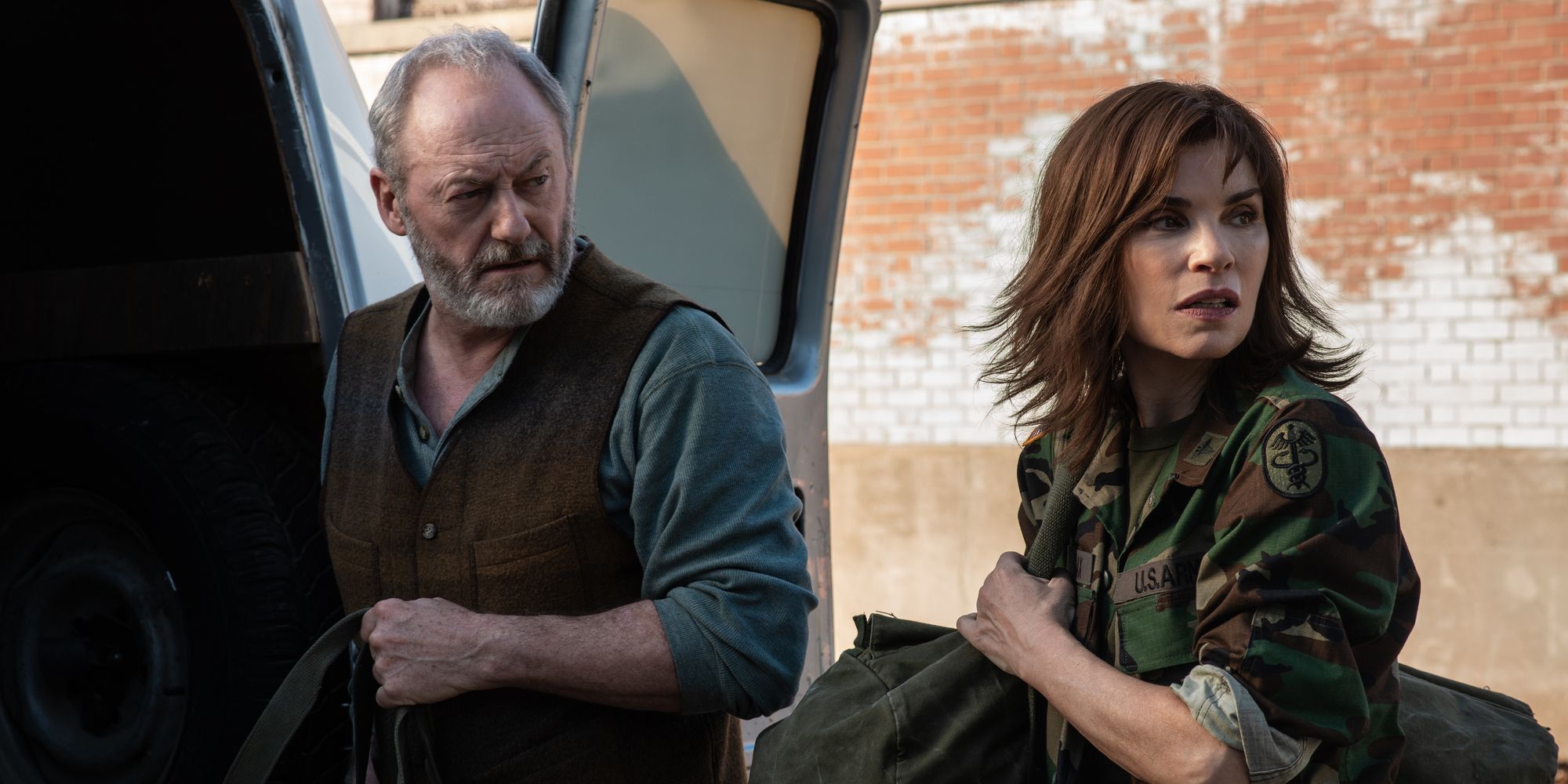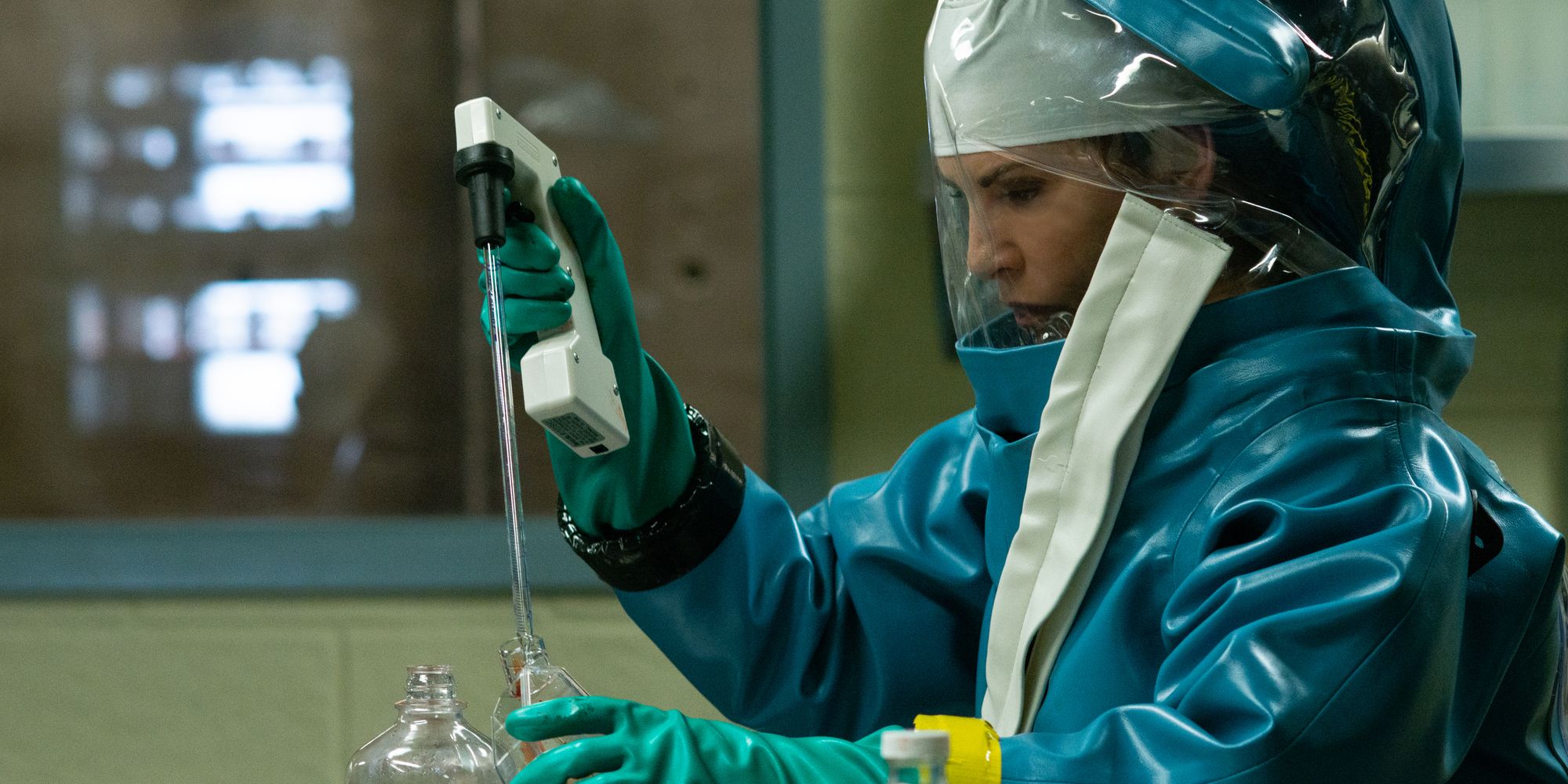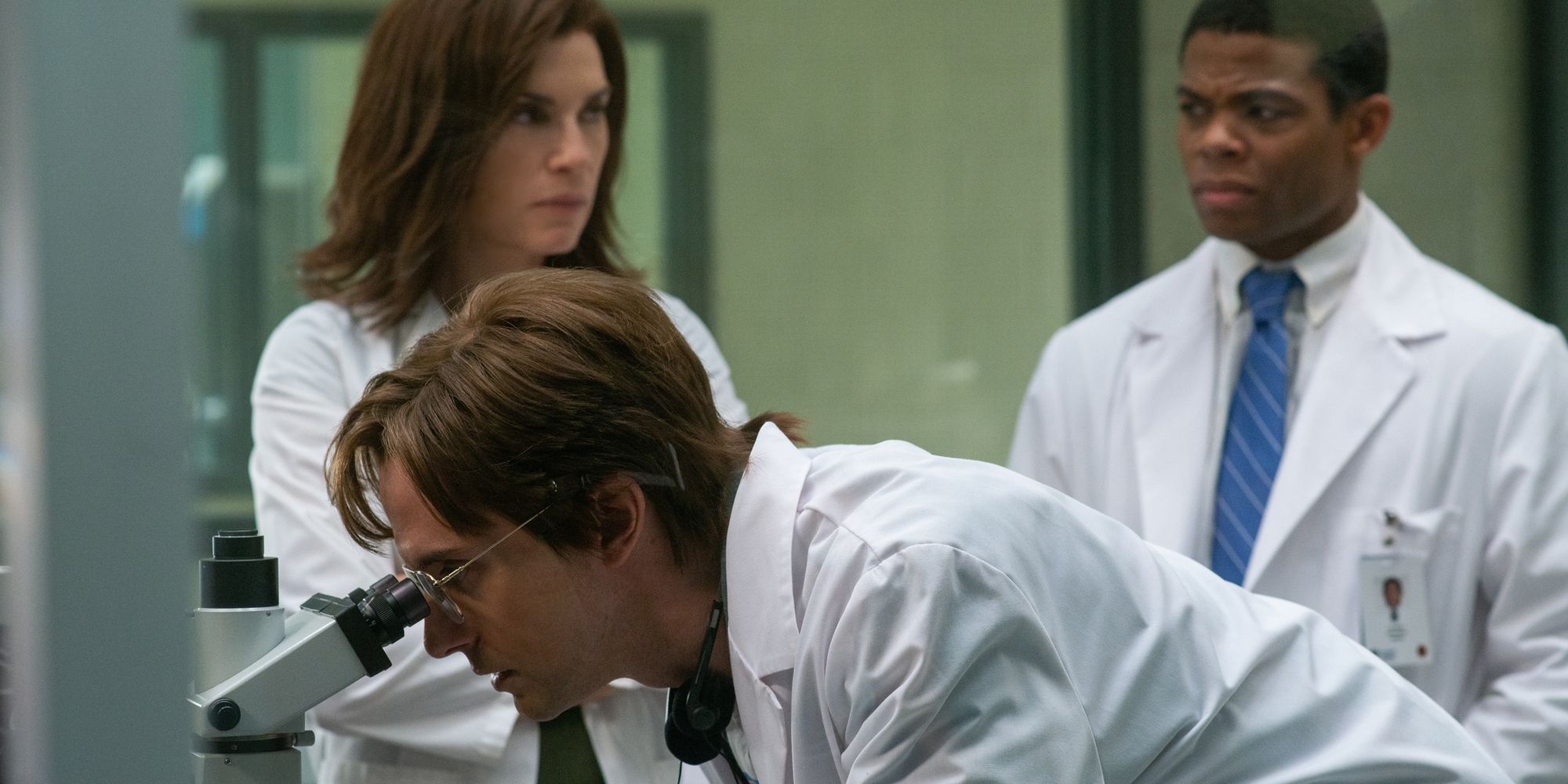National Geographic has been in the scripted drama game for a while now, but unlike the hybrid series Genius or Mars, its latest offering, The Hot Zone, comes closest to establishing a new benchmark for original programming on the cable network. Adapted from Richard Preston’s 1995 nonfiction book of the same name, the miniseries explores the origins of the devastating Ebola virus, and dramatizes the real-life account of an outbreak in the late ‘80s, miles away from the nation’s capital.
Preston’s book had long been the thing Hollywood’s movie dreams are made of: a deadly virus, a real-life scenario and a compelling real-life hero in Dr. Nancy Jaxx, played here by Julianna Margulies. The project was beaten to the punch, however, by the 1995 Dustin Hoffman thriller Outbreak, which benefitted from its more fictional, blockbuster-friendly trappings and star-studded cast. The former is something The Hot Zone struggles at times to conjure up, and as a result the early parts of the miniseres rely too heavily on an assemblage of talented actors delivering wooden dialogue about lab safety protocols, testing procedures, and the rankings of the world’s deadliest viruses — all of which happen to be locked away in a freezer in secure military laboratory on the outskirts of Washington, D.C.
The first hour is fairly rough, though Nat Geo was smart to deliver the series in two-hour blocks across three consecutive nights to help assuage concerns about the series' overall quality. The premiere is largely spent introducing Jaxx and her husband Jerry (Noah Emmerich, The Americans), as well as her lab partner, Peter Jahrling, played to irritating perfection by Topher Grace, as they study a strange tissue sample sent to them from a nearby private research facility headed up by Walter Humbolt (Robert Sean Leonard). Jahrling is quick to write the sample off as being infected by a common simian fever that’s not communicable to humans. Nancy, however, is the only one to wonder whether the tissue sample from a sick monkey might carry something deadlier. Nancy’s proven right, as she later confirms the monkeys are indeed carrying Ebola.
The series struggles with finding ways to make watching characters perform lab tests in claustrophobic rubber suits exciting and to demonstrate how waiting around for a dot matrix printer to deliver results isn’t dramatically inert. Because neither one is particularly riveting The Hot Zone does what it can to get Nancy and the rest of the cast out of the lab as frequently as possible. The results are mixed as Nancy goes rogue and cajoles a lab attendant, played by Nick Searcy (Justified), to hand over some infected monkey tissue samples for her to test. When he goes above and beyond, and delivers two rapidly thawing Ebola-infected monkey corpses in the trunk of his car, the series attempts to convince the audience it’s a thriller, as the two literally race back to Nancy's lab with dead monkeys dripping highly contagious fluids onto the street.
The Hot Zone is more successful after it reconciles itself to the fact that it’s not a traditional thriller, and instead aims to navigate gender politics within an insular medical and military setting, as Nancy is continually second-guessed and undercut by her male peers and superiors, namely Jahrling and Col. Vernon Tucker (Robert Wisdom). That’s in addition to a flashback narrative that takes place in Africa, featuring a younger looking Liam Cunningham (Game of Thrones) as Nancy’s mentor, Wade Carter, and his assistant, Trevor Rhodes (James D’Arcy, Agent Carter). The Cunningham-centric flashbacks help underline how quickly Ebola can spread and at what cost to human life, thereby raising the stakes for Nancy and the others as they try to quash an outbreak before it begins.
It’s a far more effective storytelling technique than having Nancy expound on the virus’s deadly nature to a throwaway character who is introduced via his casual misogyny. It also places additional emphasis on the magnitude of Carter’s arrival in the main story line, as he’s ostensibly been out of the game for years, labeled as a paranoid quack after his harrowing experience with the virus. Cunningham’s presence also frees up Margulies to handle the human side of the story, as Nancy is not only on the front lines of a potentially disastrous outbreak, but she must also contend with her roles as a wife and a mother.
While Margulies and Cunningham are on the front lines, Grace heads up a less successful subplot wherein he and a fellow scientist, Ben Gellis (Paul James), must deal with the likelihood they’ve been exposed to Ebola, and are now spreading the virus through everyday interactions with family members (in the case of Gellis) and bartenders (in the case of Jahrling). The scenario is rich with potential, but, like much of the miniseries itself, is dramatically hamstrung by the real-life story it’s based on.
In the end, The Hot Zone misses the mark when it comes to being a potent thriller, but that doesn’t prevent its inherent contagion paranoia from sticking with you long after the series reaches its conclusion.
The Hot Zone premieres Monday, May 27 @9pm on National Geographic.



